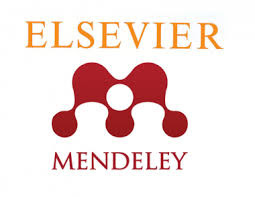INTERNATIONAL JOURNAL OF CREATIVE RESEARCH THOUGHTS - IJCRT (IJCRT.ORG)
International Peer Reviewed & Refereed Journals, Open Access Journal
ISSN Approved Journal No: 2320-2882 | Impact factor: 7.97 | ESTD Year: 2013
Call For Paper - Volume 12 | Issue 7 | Month- July 2024
Scholarly open access journals, Peer-reviewed, and Refereed Journals, Impact factor 7.97 (Calculate by google scholar and Semantic Scholar | AI-Powered Research Tool) , Multidisciplinary, Monthly, Indexing in all major database & Metadata, Citation Generator, Digital Object Identifier(DOI)
Contact Us Click Here
WhatsApp Contact Click Here
Published Paper Details:
Paper Title
DEPRESSION DETECTION BY ANALYZING SOCIAL MEDIA POST OF USE : RESEARCH PAPER
Authors
Karan Pagare, Gitesh Bhole, Pooja Mankar, Rucha Mahajan, Prof.Abhay Gaidhani, Dr.Mangesh Ghonge, Dr . Amol Potgantwar
Keywords
Machine Learning, NLP, BERT Algorithm, Depression, Classification, Social Media Post.
Abstract
Today, the problem of early detection of depression is one of the most important in psychology. Mental health problems are often among the most important health stressors in the world, with over 300 million people currently affected by depression alone. As large amounts of male or female signups are generated on social media platforms, researchers are increasing the use of evidence-gathering devices to determine if this content material can be used to uncover mental health issues in users. Depression is a disease that poses a major problem in our society and is a continuing concern, according to researchers around the world. With ubiquitous computing devices such as smartphones, predicting depressive moods remains an open question. Social media testing is often implemented to address this issue. In this article, a depression rating and suicidal ideation detection system were proposed to predict suicidal acts supporting the magnitude of depression. To do this, expert and well-established classifiers were used to discriminate whether someone is depressed or not, using competencies from their sporting activity within positions. Similar tool algorithms are used to train it and classify it into different levels of depression on a scale of 0-100%. In depression or not, the use of Art Machine Learning algorithms is a predictive method for the early detection of depression or unusual mental illnesses. The main contribution of this exam is the exploration of a competency network and its implications for the recognition of the degree of depression. This system aims to gain an in-depth understanding of the model used to categorize users with depression by understanding some cases where male or female undergraduate labels are examined to uncover postgraduate labels. By combining all of the post tag category possibilities, you can create temporary post profiles that are then used to categorize customers with depression. This paper shows that there are fluid versions in the posting patterns between depressed and non-depressed clients, as represented by the combined odds of the posting tag category. Natural Language Processing (NLP), categorized the use of the BERT set of regulations to find out depression probably in a greater on hand and inexperienced way.
IJCRT's Publication Details
Unique Identification Number - IJCRT2205225
Paper ID - 219517
Page Number(s) - c105-c118
Pubished in - Volume 10 | Issue 5 | May 2022
DOI (Digital Object Identifier) -
Publisher Name - IJCRT | www.ijcrt.org | ISSN : 2320-2882
E-ISSN Number - 2320-2882
Cite this article
Karan Pagare, Gitesh Bhole, Pooja Mankar, Rucha Mahajan, Prof.Abhay Gaidhani, Dr.Mangesh Ghonge, Dr . Amol Potgantwar, "DEPRESSION DETECTION BY ANALYZING SOCIAL MEDIA POST OF USE : RESEARCH PAPER", International Journal of Creative Research Thoughts (IJCRT), ISSN:2320-2882, Volume.10, Issue 5, pp.c105-c118, May 2022, Available at :http://www.ijcrt.org/papers/IJCRT2205225.pdf
Article Preview
Indexing Partners
Call For Paper July 2024
Call For Papers
July 2024
Volume 12 | Issue 7
Last Date :
31-Jul-2024
Submit Manuscript Online Impact Factor: 7.97 Review Results : Within 02-03 Days Paper Publication : Within 02-03 Days
July 2024
Volume 12 | Issue 7
Last Date :
31-Jul-2024
Submit Manuscript Online Impact Factor: 7.97 Review Results : Within 02-03 Days Paper Publication : Within 02-03 Days
Published Issue Details
For Authors
Forms / Downloads
Other IMP Links
Indexing Partner
Research Area
LICENSE
ISSN and 7.97 Impact Factor Details

ISSN: 2320-2882 Impact Factor: 7.97 and ISSN APPROVED Journal Starting Year (ESTD) : 2013
ISSN and 7.97 Impact Factor Details

ISSN: 2320-2882 Impact Factor: 7.97 and ISSN APPROVED Journal Starting Year (ESTD) : 2013
DOI Details
CONFERENCE
CONFERENCE MANAGMENT & PUBLICATION CONFERENCE PROPOSAL
RECENT CONFERENCE

CONFERENCE PROPOSAL CONFERENCE PROCEEDINGS

CONFERENCE PROPOSAL CONFERENCE PROCEEDINGS
For Reviewer /Referral (RMS) Earn 500 per paper
Important Links
NEWS & Conference
Digital Library
IJCRT RMS | Earn 500 Per Paper.
LICENSE
Indexing Partner





































































